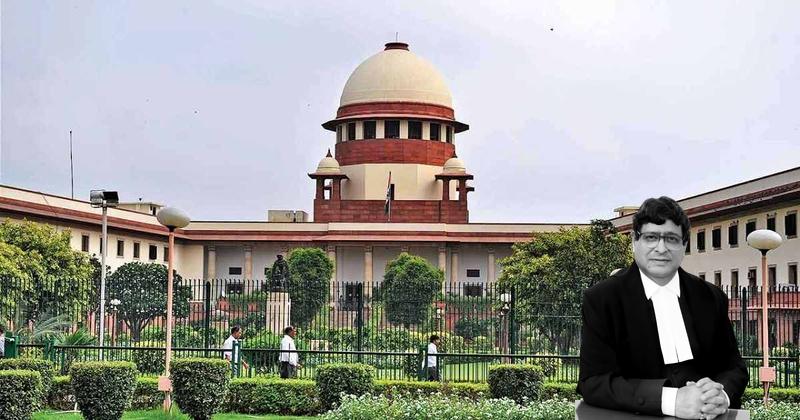In a recent legal case, the court delved into the intricate details of interpreting consent terms within a family settlement dispute. The analysis focused on the obligations of parties, the clarity of conditions, and the necessity of complete compliance. The court’s thorough legal scrutiny highlights the significance of upholding the terms of agreements in settling family disputes amicably and ensuring equity among parties involved.
Facts
- The learned Single Judge rejected the execution application, stating that there was no obligation on defendant nos. 1 to 6 to execute the letter of allotment without supplementary consent terms.
- The Division Bench upheld the Single Judge’s decision, stating that the RA Group could not be directed to execute ‘Annexure E’ or be restrained from dealing with the properties.
- The Division Bench confirmed the Single Judge’s judgment of dismissing the chamber summons/execution petition.
- The plaintiffs were dissatisfied with the Division Bench’s decision and have filed the present appeals.
- The High Court dismissed the intra-court appeal and upheld the Single Judge’s decision of dismissing the execution petition.
- The dispute is between the PA Group (appellants) and RA Group (respondents 1-6) along with Omkar Builders (defendant no.10) regarding the Worli property.
- PA Group sought execution of the consent decree for the letter of allotment, as per Annexure E, against RA Group and Omkar Builders.
- Defendant nos. 1-6 of RA Group allegedly refused to abide by the consent terms and sign the letter of allotment as per Annexure E.
- PA Group claims that RA Group did not provide any rights or benefits from the consideration received from Omkar Builders.
- RA Group, allegedly in violation of rights of first refusal, bought 75% shareholding in Kash Foods from outsiders behind the backs of PA Group and M.P. Recycling.
- A development agreement was signed between Omkar Builders, Kash Foods, and defendant nos. 3 & 4, challenged by PA Group in the suit.
- The suit was filed by PA Group against defendant nos. 1-6 seeking a 50-50 division of benefits from the Development Agreement.
- The suit was settled during its pendency in accordance with the consent terms.
Also Read: Court’s Analysis on Interim Order for Appointing Contractual Employees
Arguments
- The appellants argue that the consent terms were entered into to resolve family disputes.
- There is no obligation for the RA Group to issue ‘Annexure E’ immediately upon signing the consent terms.
- The consent terms aimed at resolving disputes related to various group companies and overall family settlement.
- The appellants seek to execute the part of the consent decree favorable to them without fulfilling obligations under the consent terms.
- The implied condition of issuing ‘Annexure E’ being contingent on the supplementary consent terms is disputed by the appellants.
- The order of performance in agreements should be expressly stated for clarity and validity.
- The appellants believe that entering into the consent terms would serve no purpose if the conditions weren’t clear.
- The consent terms extended beyond the specific civil suit and aimed at a comprehensive resolution of all disputes among the parties.
- RA Group may deal with properties subject to the consent terms involving Kash Foods Property.
- Absence of direction in clause regarding ‘Annexure E’ contradicts PA Group’s submission.
- Clause 28 does not bind Omkar Builders as they were not a party to the consent terms/decree.
- High Court passed an order to enable Omkar Builders to issue ‘Annexure E’ for compliance.
- RA Group has exclusive rights over PA Kash Foods Property as per clause 22 of consent terms.
- No direction in the consent terms obligates RA Group to sign ‘Annexure E’ at this stage.
- Court’s interpretation of consent terms confirmed RA Group’s freedom to deal with its properties.
Also Read: The Supremacy of Pharmacy Act in Regulating Pharmacy Education
Analysis
- Further execution of supplemental consent terms/family arrangement required between the parties
- Technicalities should not hinder implementation of settlement crucial for family harmony
- Both parties required to fully comply with terms of settlement/consent decree as per agreement
- Consent terms aimed at settling disputes related to various companies and properties within the family
- Requirement for complete execution of consent terms, no partial compliance permitted
- Parties agreed to designate specific properties to respective groups in the settlement
- Importance of family settlements in maintaining peace and goodwill acknowledged
- Need for complete execution of supplemental consent terms/family arrangement emphasized
- Partial execution of settlement terms not acceptable, overall compliance required
- The executing court’s duty is to ensure that parties receive the benefits of the decree, especially in the case of a consent decree.
- It is emphasized that the terms of a family settlement should be upheld in both letter and spirit.
- The decision in the case of Saradamani Kandappan is not directly applicable to the current case due to differences in the terms of the settlement.
- The implied term in the settlement suggests the execution of further supplemental consent terms and the transfer of 8 flats to the PA Group.
- Failure to implement all parts of the consent decree would defeat the purpose of resolving disputes amicably between parties.
- To balance between the parties, the RA Group can be directed to counter-sign a letter for the flats allotted to the PA Group until further supplemental terms are executed.
- Both parties are required to fully implement the consent decree and enter into additional terms within a reasonable time frame.
- Compliance with the Restraint order is necessary until the further supplemental terms are executed.
Also Read: Judicial Analysis: Death Penalty Conversion in Landmark Case
Decision
- Both parties, PA Group & RA Group, must fully comply with the consent terms and enter into further supplemental consent terms/family arrangement within four months.
- RA Group to counter-sign ‘Annexure E’ letter for 8 flats listed in ‘Annexure A’.
- PA Group prohibited from alienating or transferring the 8 flats until full implementation of consent terms.
- Omkar Builders to strictly abide by the restraint order in relation to PA Kash Foods Property.
- Settlement covers disputes regarding various companies and properties, aiming for complete resolution.
- Parties to execute a definitive Family Arrangement and Settlement by a certain date.
- Modalities of valuation and payment to be decided by both parties for certain properties.
- Nominated attorneys of both parties authorized to resolve any disputes during the process.
- Restraint imposed on RA Group regarding PA Kash Foods Property, with exceptions for RA Kash Foods Property.
- Public Notice to be published regarding withdrawal of claims and interests in certain properties.
- PA Group withdraws allegations against Defendants and confirms lack of interest in certain properties.
- Costs not awarded in the case, and RA Group granted permission to deal with specific flats.
- Mediators to be appointed by a certain date for eventual parting of ways between the parties.
- Parties undertake to cooperate and execute necessary documents for the implementation of consent terms.
- Both parties directed to act as per the restraint order specified in the consent terms.
Case Title: PAWAN KUMAR ARYA Vs. RAVI KUMAR ARYA (2020 INSC 252)
Case Number: C.A. No.-000945-000946 / 2020



